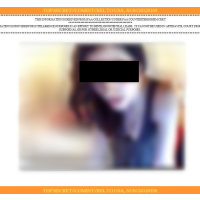NSA Collected Love Letters and Family Photos of Americans not Associated with Terrorism
 Private photo of U.S. citizen from NSA data collection
Private photo of U.S. citizen from NSA data collection
The private lives of ordinary Americans and others with no connection whatsoever to terrorism have been violated by the U.S. government in its widespread intelligence gathering operations.
All kinds of personal communications—from intimate messages to family photos—have been collected and stored in secret repositories controlled by the National Security Agency (NSA), according to an investigation by The Washington Post.
Performed under the guise of counterterrorism operations, the collecting of personal emails, text messages and images has by far outnumbered the communications of would-be threats.
Through documents released by whistleblower Edward Snowden, the newspaper discovered just how extensive NSA prying into Americans’ lives has been. Government officials earlier claimed that Snowden never had such access to materials so sensitive.
“The surveillance files highlight a policy dilemma that has been aired only abstractly in public. There are discoveries of considerable intelligence value in the intercepted messages — and collateral harm to privacy on a scale that the Obama administration has not been willing to address,” the Post’s Barton Gellman, Julie Tate and Ashkan Soltani wrote.
This reluctance isn’t surprising perhaps considering the “startlingly intimate, even voyeuristic quality” of the files maintained by the NSA, they added. Within the files are love letters as well as other communications of people discussing their sex lives, their financial worries, their health concerns and even their broken dreams.
The Post reviewed about 160,000 emails and instant messages coming from at least 10,000 account holders who were not suspected of being a threat, yet whose personal information was swept up by the NSA.
NSA analysts sometimes use thin evidence to decide if an account holder is foreign. If correspondence is in a language other than English, if an account holder shows up on a known foreigner’s chat “buddy list,” or if their internet traffic appears to emanate from overseas, that’s often enough for the NSA. Many internet users, especially sports fans, are known to use “proxies” to hide their true location so they can watch live events.
-Noel Brinkerhoff
To Learn More:
In NSA-Intercepted Data, Those Not Targeted Far Outnumber the Foreigners Who Are (by Barton Gellman, Julie Tate and Ashkan Soltani, Washington Post)
Privacy and Civil Liberties Board Reports that NSA Warrantless Surveillance is Okay (by Noel Brinkerhoff and Steve Straehley, AllGov)
- Top Stories
- Unusual News
- Where is the Money Going?
- Controversies
- U.S. and the World
- Appointments and Resignations
- Latest News
- Trump Orders ICE and Border Patrol to Kill More Protestors
- Trump Renames National Football League National Trump League
- Trump to Stop Deportations If…
- Trump Denounces World Series
- What If China Invaded the United States?






Comments